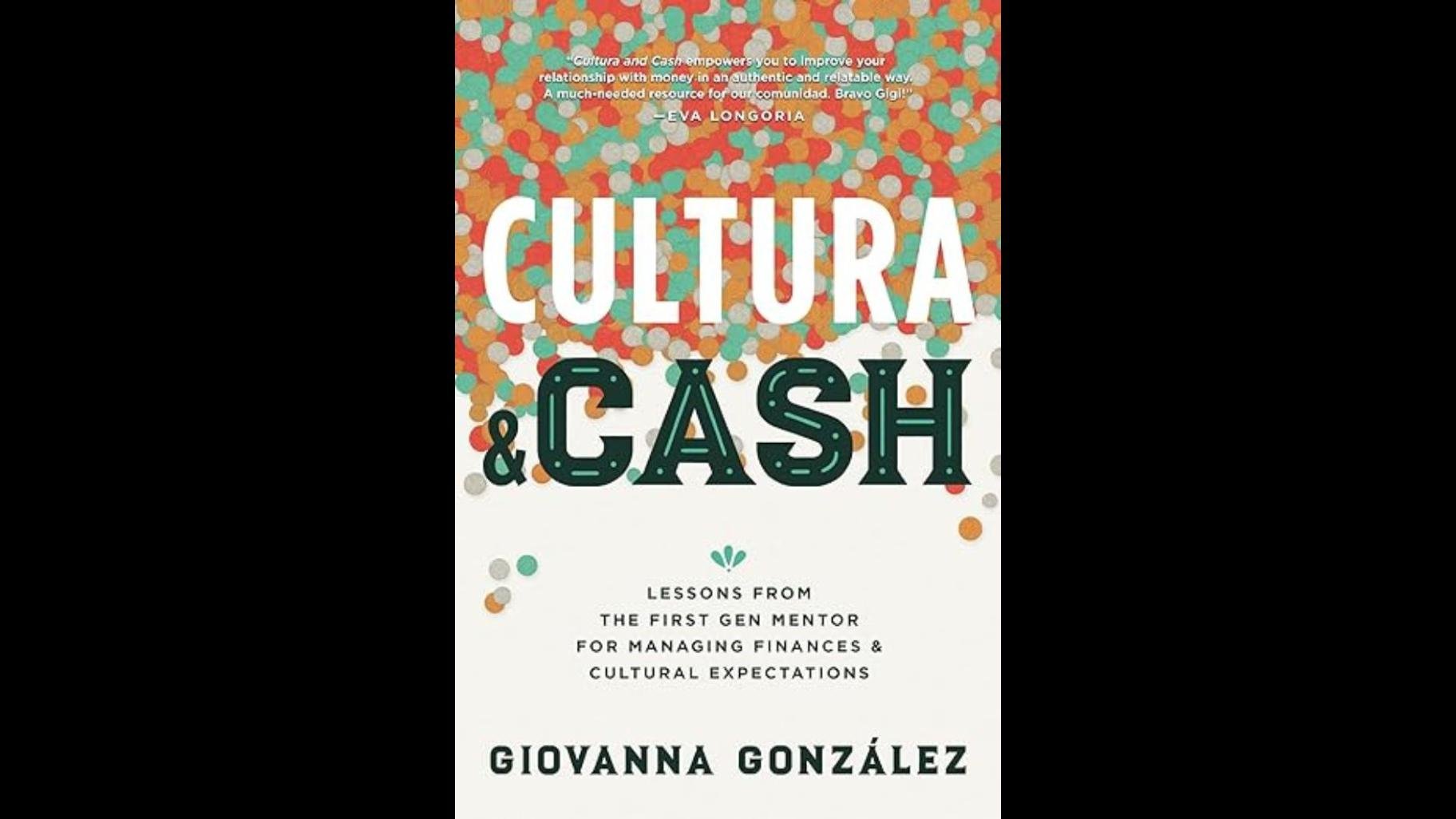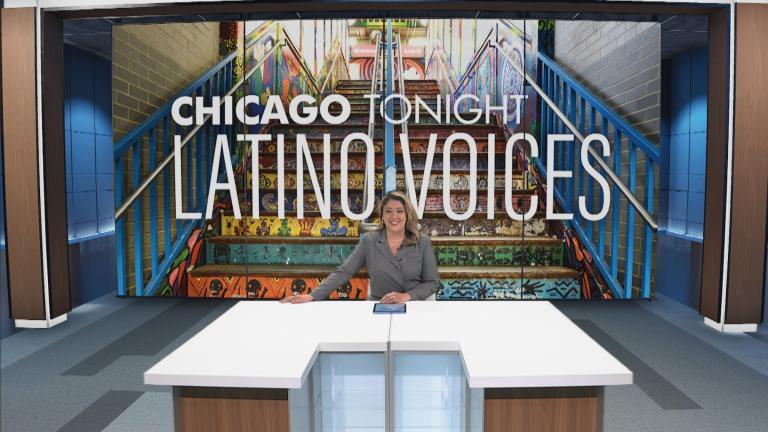For first-generation individuals, building wealth can be intimidating. And while learning how to navigate finances can be challenging, it is possible. Giovanna González has made it her life’s mission to pass on these lessons and teach others how to tackle their finances while unpacking cultural and systemic barriers.
That’s the subject of her newly released, best-selling book, “Cultura and Cash: Lessons from the First Gen Mentor for Managing Finances and Cultural Expectations.”
“Our culture very much affects how we navigate money,” González said. “And there were no other books. I read over 50, and none of them address that. So even though I learned a lot from those books, the ABCs of how to build wealth, how to save money, how to pay off debt, nobody in those books taught me how to manage money, with the cultural expectations that my Latino family had.”
Her book includes what she calls the “first-gen five”: five pillars to financial literacy such as tips for building emergency funds, budgeting and paying off debt.
“But then at the end, I’m always like, ‘How do emergency funds play with your family?’” González said. “So what if they have a financial emergency? You don’t use your emergency fund, you use another emergency fund that you set up for family only? Or if you’re regularly providing financial support to family, add them into a line and your budget?”
Known as the “First Gen Mentor” to her social media followers, she said she’s building a community where she hopes first-generation Latinas can take ownership of their financial literacy journey.
Read an excerpt from the book below.
 “Cultura y Cash” by Giovanna González.
“Cultura y Cash” by Giovanna González.
How Our Cultura Affects Our Money Experience
It's About to Get Real
As first-generation Latinas, we face unique challenges when it comes to finances. Lack of financial literacy in schools, cultural differences, and our parents' struggles shape our approach to money. Here's a glimpse into our journey:
School Doesn't Teach Personal Finance
In K-12, they'll teach us the periodic table in chemistry or the Pythagorean theorem in math class. But nobody teaches us the stuff that really matters, like how to create a budget or how to understand a credit card statement. Understanding how money works is a critical life skill. Especially when the student debt crisis disproportionately affects Black, Indigenous, and other people of color, who not only carry more debt than their peers and don't have the knowledge to understand how it works, but they also struggle to secure equal-paying jobs so they can pay off their debts.
Our Parents Lived in Survival Mode
The lack of financial literacy in school affects all students, but at least the students with parents who have generational knowledge can be taught some basics at home. That's not the experience of the children of immigrants, whose biggest priority is often putting food on the table and feeding their family on a minimum-wage salary. Our parents didn't have the luxury to even begin to think about how to hack the system and make it work in their favor to get ahead. For them, just paying the bills on time in a foreign country was a win. Their biggest priority was surviving that month and hoping they could do it again the month after that.
Our Parents Mistrust Financial Systems
Another barrier that can affect your family's ability to build wealth in this country is their mistrust of banks. If your parents immigrated from a country with a poorly regulated financial system, they probably don't trust financial institutions. My parents had terrible banking experiences with Mexican banks. Both my parents have felt cheated and lied to by the Mexican financial system, and they've carried over those negative feelings of mistrust to this country.
Plus, the industry is riddled with confusing financial jargon that intimidates the average Englishspeaking American. We hear foreign terms like "annual percentage yield" and "par value" but get little to no explanation of what these words actually mean. To make matters worse, financial institutions don't hire enough bilingual staff in customer-facing roles that can service them in their native language, or offer an interpreter line to help.
Their Immigration Status
If your parents are undocumented, that could be another reason why they're disengaged from the US financial system. A lot of undocumented immigrants fear that if they get on the government's radar, they can risk deportation. For them, it's better to play it safe and avoid banks altogether.
Individualistic Versus Collectivist Cultures
Part of the reason that our parents have been able to get by without participating in the US financial system is our collectivist money culture - as opposed to the individualistic culture of Americans.
An individualistic culture prioritizes the needs of the individual over the needs of others. In this culture, people are considered good with money if they are self-reliant, independent, and autonomous. When it comes to money, you prioritize what's best for your financial needs. Not what's best for others.
On the other end of the spectrum are collectivist cultures. Most Latine communities operate under this type of culture. A collectivist culture prioritizes the needs of others over your own. You're expected to be obedient, self-sacrificing, and put the group's needs before your individual needs when help is needed.
Someone in your family needs some extra cash? You drop what you're doing now to help. You don't have the money to help? No importa. Being a good family member means you're there for your family when they call-no questions asked. You figure out a way to show up for them. Any deviation from that signals you're selfish and not a dependable family member.
Similarly, if you need financial support, the first place you turn to is family. You don't need a bank. Because that's what family is for, they're there for you when you need them the most. If others loan you money, it's a sign that you're loved and trusted enough to pay it back. In this money culture, your worth is determined by how committed you are to helping your family get out of financial hardships, no matter the cost.
This is an excerpt from “Cultura & Cash” by Giovanna Gonzalez. For more information or to purchase the book, visit www.culturaandcash.com.








